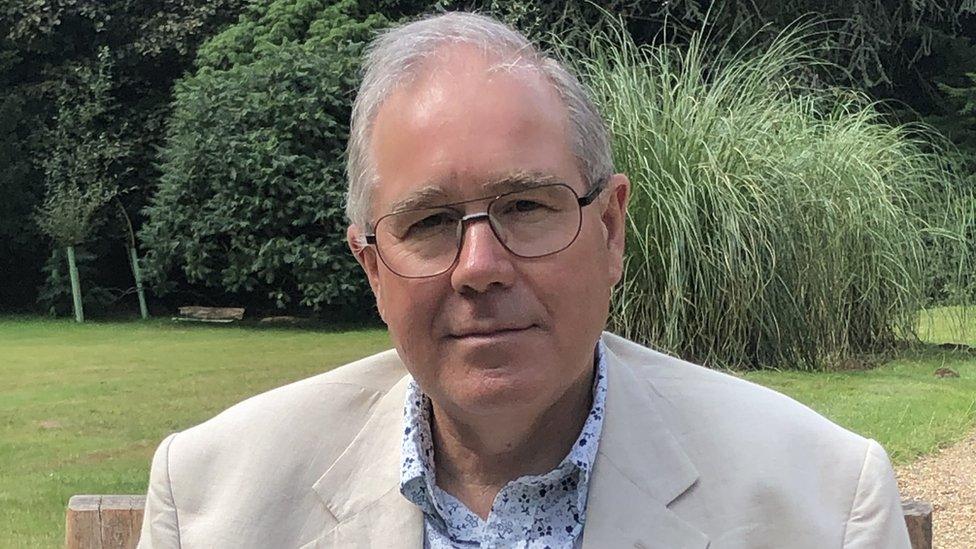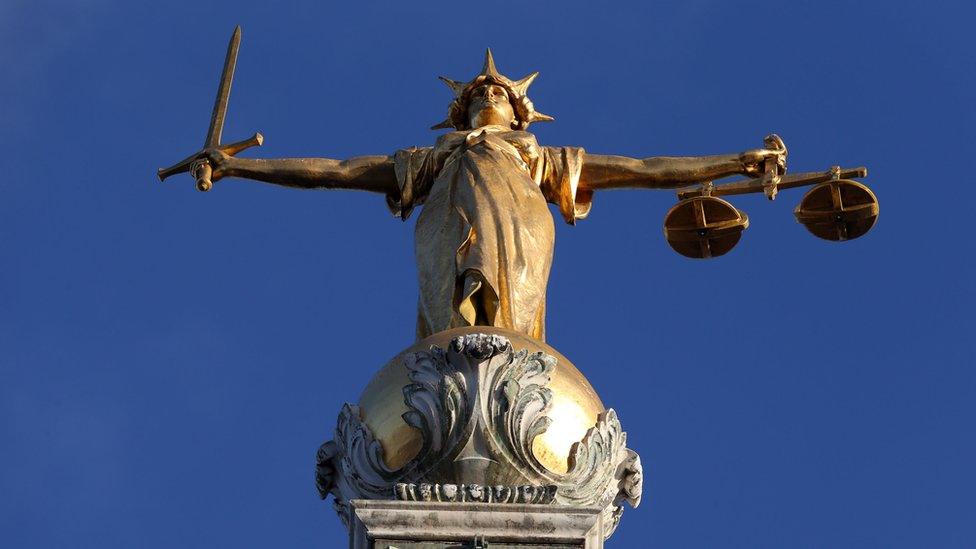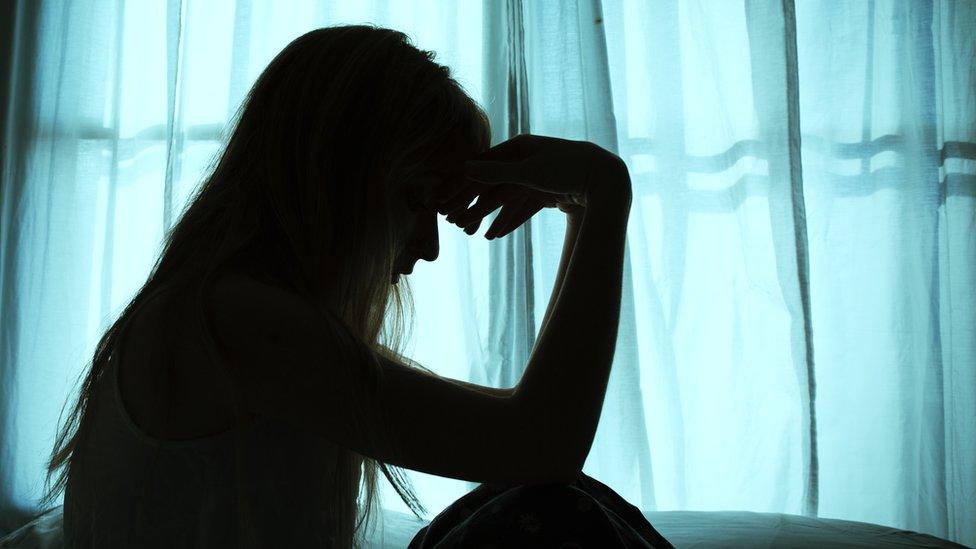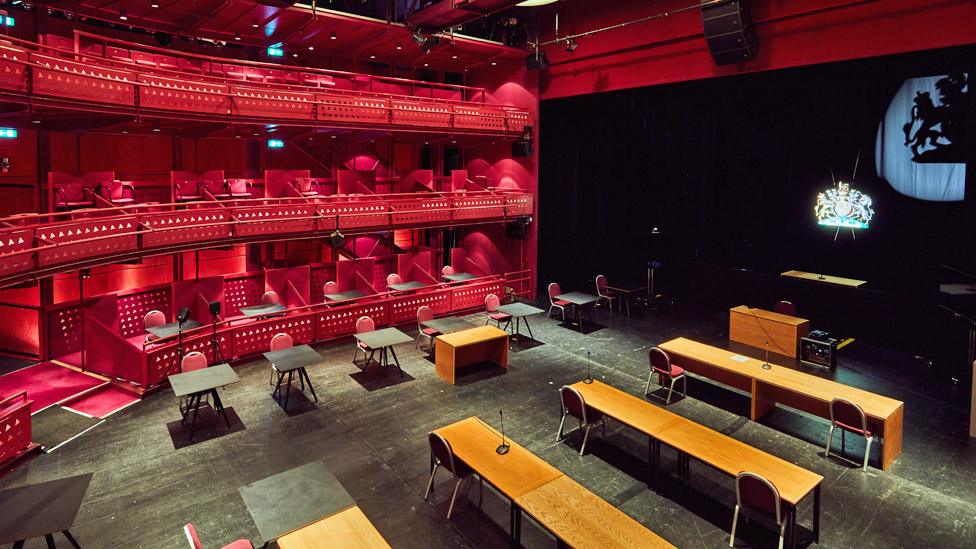Coronavirus: Retiring judge says justice system 'paralysed'
- Published

Judge Peter Ross was previously director of the Office for Supervision of Solicitors
A retiring judge has said the justice system is in "complete paralysis" and suggested some cases be tried without juries to help clear the backlog.
Judge Peter Ross, who was previously director of the Office for Supervision of Solicitors, described the situation as "unacceptable and unsustainable".
He blamed the government's decision to reduce court sitting days in 2019.
A spokesman for HM Courts and Tribunals Service said its response to Covid-19 had been "world-leading".
But Judge Ross, who sat at Oxford and Reading crown courts and retired last Saturday, said it was "disingenuous" to suggest the problem was only due to coronavirus.
He said there was already a backlog of 37,000 cases at the start of the pandemic and it had been increasing by 1,000 a month.
Backlog 'politically acceptable'
"Everyone involved in the criminal justice system, be they witnesses, victims, or defendants, suffers as a result of the cuts we've seen," he said.
"The backlog is unacceptable and unsustainable. There are cases now being adjourned until 2022.
"Quite simply, it has paralysed the criminal justice system."
He said he believed the backlog of cases had been seen as "politically acceptable" by the government as it tried to save money.
"If you are a child waiting to give evidence, a complainant in a rape case waiting to give evidence, if you are a defendant, who remember is presumed innocent until proven otherwise, who is sitting on remand in the local prison for months and months, 37,000 cases is not acceptable."

By June there was backlog of 42,707 outstanding crown court cases in England and Wales
Judge Ross said "unpalatable decisions will need to be made" to deal with the backlog of cases.
He said: "The current approach is not going to have a major impact, the government has got to grasp the issue of who tries cases in the crown court.
"There was a suggestion recently, that floated to the surface and then disappeared, that in 'either-way cases' we would not sit with a jury, but a judge would sit with say two magistrates.
"I can't see anything wrong with that."
Either-way cases, external are those in which a defendant can either be tried in a magistrates court or by a jury in a crown court.
Law Society of England and Wales president Simon Davis said he agreed with Judge Ross about the causes of the backlog but would not support removing juries from some cases.
He said: "Rather than interfering with jury trials, the Ministry of Justice and HMCTS should ensure that it is making maximum use of normal court hours and the existing court estate."
A HMCTS spokesman said: "Our response to the pandemic has been world-leading, with the number of cases now falling in the magistrate courts and more jury trials being heard each week, including in Oxford.
"We are also opening eight more Nightingale Courts, recruiting over a thousand new staff and further rolling out technology to boost our capacity."
- Published25 September 2020

- Published17 September 2020

- Published19 July 2020

- Published21 September 2020
